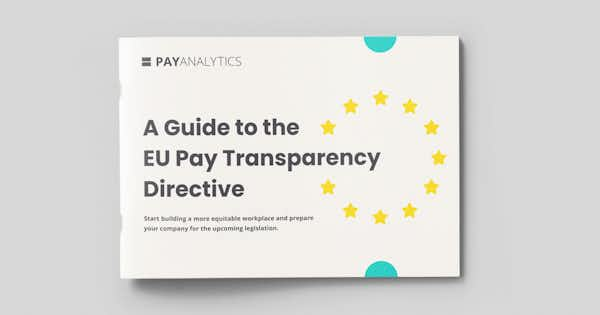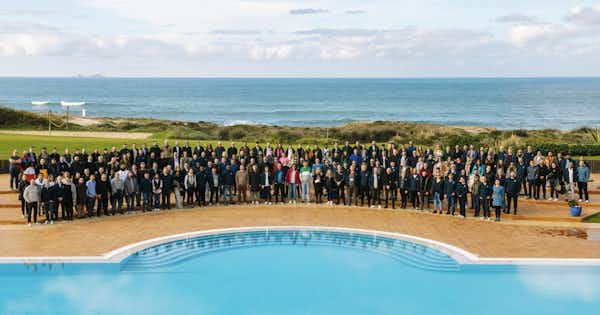Evróputilskipun um gagnsæi í launum | Sækja rafbók hér.
Mæla launabilið

Launagreiningar
Með því að skoða hvaða þættir hafa áhrifa á laun geturðu tekið betri ákvarðanir í framtíðinni.
PayAnalytics hugbúnaðurinn
Fáðu góða yfirsýn yfir launastrúktúr fyrirtækisins, skýra mynd af dreifingu starfsfólks, framkvæmdu launaúttektir, fylgdu reglugerðum og lokaðu launabilum - allt í einum hugbúnaði.
Launagreiningar
Skoðaðu þá þætti sem hafa áhrif á laun og taktu góðar ákvarðanir.
Virðismiðaður samanburður
Berðu saman mismunandi störf með tilliti til "jöfn laun fyrir jafn verðmæt störf".
Jafnréttisvísar
Framkvæmdu greiningar á starfsmannahópnum og fáðu innsýn í fjölbreytileika vinnustaðarins.
Hækkunartillögur
Fáðu sérsniðnar hækkunartillögur með PayAnalytics, byggðar að þínum þörfum.
Skýrslur
Fáðu hjálp við að uppfylla kröfur um skýrslugjöf, auk sveigjanleika til að útbúa sérsniðnar skýrslur.
Launaráðgjafinn
Fáðu aðstoð við að taka góðar launaákvarðanir og viðhalda launajafnréttinu.
Gagnastjórnun
Sjáðu launastrúktúrinn þinn myndrænt, og gerðu þær gagnabreytingar sem þú þarft.
Starfsmat
Berðu saman ólík störf og eiginleika starfsfólks byggt á stöðluðum og hlutlausum forsendum.
Aðgangsstjórnun
Stjórnaðu aðgöngum notenda eða búa til notendahlutverk sem samnýta aðgangsstillingar.
Nýtt

Ný Evróputilskipun um gagnsæi í launum
ESB hefur samþykkt nýja tilskipun um launagagnsæi. Aðildarríki ESB og EES þurfa að leiða hana í lög fyrir mitt ár 2026.
Yfirlit yfir fræðsluefni
Fræðsluefni um meðal annars launajafnrétti, launagagnsæi og fjölbreytileika og inngildingu (DEI).
Leiðarvísar
Við höfum tekið saman leiðarvísa um launajafnrétti, launagagnsæi og margt fleira.
Greinar og blogg
Greinar um launa- og vinnustaðajafnrétti, launagagnsæi, hvernig á að miðla upplýsingum um launajafnrétti og margt fleira.
Staðbundnar kröfur
Listi af kröfum sem gerðar eru til fyrirtækja um launajafnrétti í mismunandi löndum og landsvæðum.
Coffee Talk hlaðvarpið
Margrét Bjarnadóttir og Henrike von Platen fara yfir það nýjasta í launajafnréttis málum á 8 mínútum.
Árangurssögur viðskiptavina
Lestu um viðskiptavini sem hafa náð árangri með PayAnalytics.

Sameining PayAnalytics og beqom
PayAnalytics og svissneska hugbúnaðarfyrirtækið beqom hafa náð samkomulagi um kaup beqom á öllu hlutafé í PayAnalytics. Kaupin eru mikilvæg viðurkenning á lausn PayAnalytics sem er leiðandi á heimsvísu.
Um okkur
Hugbúnaðurinn okkar er byggður á yfir áratug af rannsóknum og þróun af verðlaunuðum prófessorum, launjafnréttissérfræðingum og verkfræðingum.
Störf
Viltu vinna með okkur? Við erum stöðugt að stækka.
Fréttir
Nýjustu fréttir um fyrirtækið, viðburði, árangurssögur viðskiptavina, fréttatilkynningar og margt fleira.
Vörumerki
Yfirlit yfir vörumerki PayAnalytics, verðlaun og sögu fyrirtækisins.
Samstarfsaðilar
Við vinnum m.a. með ráðgjafastofum, lögfræðisstofum og vottunaraðilum.
Ráðgjöf
Sérsniðin ráðgjöf um innleiðingu launajafnréttis sem styður við notkun PayAnalytics.
PayAnalytics hugbúnaðurinn
Fáðu góða yfirsýn yfir launastrúktúr fyrirtækisins, skýra mynd af dreifingu starfsfólks, framkvæmdu launaúttektir, fylgdu reglugerðum og lokaðu launabilum - allt í einum hugbúnaði.
Launagreiningar
Skoðaðu þá þætti sem hafa áhrif á laun og taktu góðar ákvarðanir.
Virðismiðaður samanburður
Berðu saman mismunandi störf með tilliti til "jöfn laun fyrir jafn verðmæt störf".
Jafnréttisvísar
Framkvæmdu greiningar á starfsmannahópnum og fáðu innsýn í fjölbreytileika vinnustaðarins.
Hækkunartillögur
Fáðu sérsniðnar hækkunartillögur með PayAnalytics, byggðar að þínum þörfum.
Skýrslur
Fáðu hjálp við að uppfylla kröfur um skýrslugjöf, auk sveigjanleika til að útbúa sérsniðnar skýrslur.
Launaráðgjafinn
Fáðu aðstoð við að taka góðar launaákvarðanir og viðhalda launajafnréttinu.
Gagnastjórnun
Sjáðu launastrúktúrinn þinn myndrænt, og gerðu þær gagnabreytingar sem þú þarft.
Starfsmat
Berðu saman ólík störf og eiginleika starfsfólks byggt á stöðluðum og hlutlausum forsendum.
Aðgangsstjórnun
Stjórnaðu aðgöngum notenda eða búa til notendahlutverk sem samnýta aðgangsstillingar.
Yfirlit yfir fræðsluefni
Fræðsluefni um meðal annars launajafnrétti, launagagnsæi og fjölbreytileika og inngildingu (DEI).
Leiðarvísar
Við höfum tekið saman leiðarvísa um launajafnrétti, launagagnsæi og margt fleira.
Greinar og blogg
Greinar um launa- og vinnustaðajafnrétti, launagagnsæi, hvernig á að miðla upplýsingum um launajafnrétti og margt fleira.
Staðbundnar kröfur
Listi af kröfum sem gerðar eru til fyrirtækja um launajafnrétti í mismunandi löndum og landsvæðum.
Coffee Talk hlaðvarpið
Margrét Bjarnadóttir og Henrike von Platen fara yfir það nýjasta í launajafnréttis málum á 8 mínútum.
Árangurssögur viðskiptavina
Lestu um viðskiptavini sem hafa náð árangri með PayAnalytics.
Um okkur
Hugbúnaðurinn okkar er byggður á yfir áratug af rannsóknum og þróun af verðlaunuðum prófessorum, launjafnréttissérfræðingum og verkfræðingum.
Störf
Viltu vinna með okkur? Við erum stöðugt að stækka.
Fréttir
Nýjustu fréttir um fyrirtækið, viðburði, árangurssögur viðskiptavina, fréttatilkynningar og margt fleira.
Vörumerki
Yfirlit yfir vörumerki PayAnalytics, verðlaun og sögu fyrirtækisins.
Samstarfsaðilar
Við vinnum m.a. með ráðgjafastofum, lögfræðisstofum og vottunaraðilum.
Ráðgjöf
Sérsniðin ráðgjöf um innleiðingu launajafnréttis sem styður við notkun PayAnalytics.

- Forsíða
- Fræðsluefni
- Coffee Talk Podcast
Friday Coffee Talk from Planet Fair
Í Friday Coffee Talk ræða Margrét Bjarnadóttir, stofnandi PayAnalytics, og Henrike von Platen, stofnandi Fair Pay Innovation Lab, um málefni líðandi stundar sem varða launajafnrétti, launagagnsæi og jafnrétti á vinnustöðum. Friday Coffee Talk er átta mínútna spjall og kemur út annan hvern föstudag.
- Coffee Talk
In this episode, Margrét and Henrike talk about certifications and their benefits. Tune in for an insightful conversation!
- Coffee Talk
In this Coffee Talk, Margrét and Henrike answer your pressing questions about which pay equity KPIs to report on and how to communicate your journey. Tune in!
- Coffee Talk
In our first Coffee Talk after a short summer pause, Dr. David Ryberg Anderson joins Margrét to discuss his recent research into the efficiency of pay transparency laws in the United States. Are employers complying in these States by posting salary ranges with job advertisements? Listen to the Coffee Talk to get the how, why, when, and what.
- Coffee Talk
In this week's coffee talk, Henrike and Margrét followup on questions raised in Episode 46 about the applications of AI in HR. AI can make us faster and more efficient in some ways—speeding manual, tedious tasks, for example—but, if we aren't careful, biases can slip in and catch us off guard. Watch this coffee talk to learn about proactively monitoring AI tools in HR.
- Coffee Talk
In this week’s coffee talk, Margrét and Henrike chat ChatGPT and its applications for HR. They coach us in best practices for posing questions to the chatbot to yield the most valuable answers for HR practitioners, and point out where (and why) to use caution. And did we mention there’s a side-by-side demo of ChatGPT3.5 and 4?
- Coffee Talk
This week, Margrét speaks to Henrike von Platen from San Diego, where World at Work’s Total Rewards ‘23 conference has just wrapped up. So the topic of the day? Major takeaways, of course, at the meeting point of people analytics, great data infrastructure, and DEI goals.
- Coffee Talk
Diversity will drop into place if your system is objective and stereotype-free. But what if it isn’t?
- Coffee Talk
In ensuring pay equity, global companies contend with the need to account for cultural values across countries. Read on to find out how to address cultural differences in compensation decisions.
- Coffee Talk
Among the practices that helped earn BMW its gold medal for universal fair pay leadership, the company allows joint leadership for some leadership positions. In this coffee talk, Margrét and Henrike discuss this practice: when can it be helpful to allow one full-time position to be filled by two part-time workers instead?
- Coffee Talk
Margrét and Henrike talk about the variables that determine pay. Should older employees be paid more than young ones doing the same job? Are there alternative approaches to using age to represent experience? Our hosts also talk about employee performance, the most controversial (and possibly most fun) variable to measure.
- Coffee Talk
In this week’s Coffee Talk, Henrike speaks with Astrid Siemes-Knoblich. Astrid served as mayor of her town in southwestern Germany. After her term was over, she realized that her predecessor and her successor — who were both men — were paid more than she was.
- Coffee Talk
Margrét and Henrike talk about good news for pay equity: International Women’s Day and a major Universal Fair Pay Check win from BMW. The duo discuss why companies pursue fair pay certification. (It’s not just about employer branding – it can build lasting trust with employees.) Plus, they outline the two first steps companies take in order to get certified.











